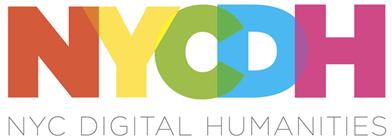The Journal of Interactive Technology and Pedagogy
Special Issue:
Extended Reality (XR) Pedagogies & Applications:
Interactive & Immersive Educational Technologies
Issue Editors:
Amanda Licastro (Stevenson University)
Angel David Nieves (San Diego State University)
Victoria Szabo (Duke University)
This special issue of The Journal of Interactive Technology and Pedagogy seeks to feature pedagogical approaches to integrating XR technology into the educational curriculum in a wide variety of institutions and settings. The intention is to highlight a wide range of inter-, multi-, and transdisciplinary approaches to both utilizing and creating Virtual Reality, Augmented Reality, and other immersive technologies (collectively referred to as Extended Reality, or XR) at any level of education. We are interested in the study, design, development, and critique of student-centered and interactive uses of XR applications, and particularly welcome consideration of uses that involve collaborations with community partners, and cases where the XR technology aims to facilitate social justice and equitable access. We are also interested in examples of STEM to STEAM (Science, Technology, Engineering, Art, and Mathematics) collaboration, and in initiatives that include a wide range of students and disciplines in engagement with XR. Our concept of XR is inclusive of everything from mobile and cardboard applications, to 360 video and games, to CAVES and full-on immersive headsets and controller-based applications.
Possible topics could include:
– How are AR and VR technologies being used to evoke empathy?
– What are some effective techniques for scaffolding XR creation in a non-specialist classroom setting?
– How can XR technology be made accessible and inclusive to all students regardless of sensory, financial, or other potential limits?
– How do we know what is good in the field? How do we assess the quality of the work as research? As a scholarly contribution? As a cultural intervention?
– How do social and ethical considerations play out in the study and creation of XR curriculum?
– What are the challenges and opportunities for working with commercial (or corporate) providers in this space? (considerations of hardware, software, and instruction)
– How are university museums and galleries are using AR and VR technologies to immerse visitors and students, via cultural and historical reconstructions, experiences, and documentary applications?
– How are theater and set-design departments using AR and VR technologies to teach students?
– How is student work pointing to the artistic potential of the medium?
– How does engagement with XR extend the conversations in film- and media-studies critique and practice?
– What questions do innovations in medical and surgical applications, pedagogy, and training raise?
– How do virtual labs and simulations enhance teaching and learning in the sciences, engineering, trades, etc.?
– How are historians using XR and other immersive technologies to create opportunities for their students and other members of the public to experience the past?
We invite multimedia elements in submissions along with interdisciplinary and creative approaches in the humanities, arts, sciences, and social sciences. This can include audio or visual presentations and interviews, dialogues, or conversations; creative/artistic works; manifestos; or other scholarly materials. All submissions are subject to an open peer-review process. Manuscripts should be under 5,000 words, original and unpublished, and, as a courtesy to our reviewers, not submitted elsewhere.
For further information on style and formatting, accessibility requirements, and multimedia submissions, consult JITP‘s accessibility guidelines, style guide, and multimedia submission guidelines. Submissions received that do not fall under the specific theme of this issue, but do fall under JITP’s broader themes, may be considered for publication in a future issue.
Furthermore, essays under 1,000 words demonstrating or reviewing available XR tools or applications, or showing step-by-step how to create an educational XR application, may be considered for a separate “Views from the Field” section. These shorter pieces will not be peer reviewed, but are subject to review from the Issue Editors. Please mark such submissions clearly as “Issues – Views from the Field.”
Please contact the editors with further questions at admin@jitpedagogy.org or via Twitter @JITPedagogy.
Important Dates
Submissions deadline for full manuscripts is November 30th, 2019. Please view our submission guidelines for information about submitting to the Journal.
Source: https://jitp.commons.gc.cuny.edu/call-for-submissions/#issuecall
